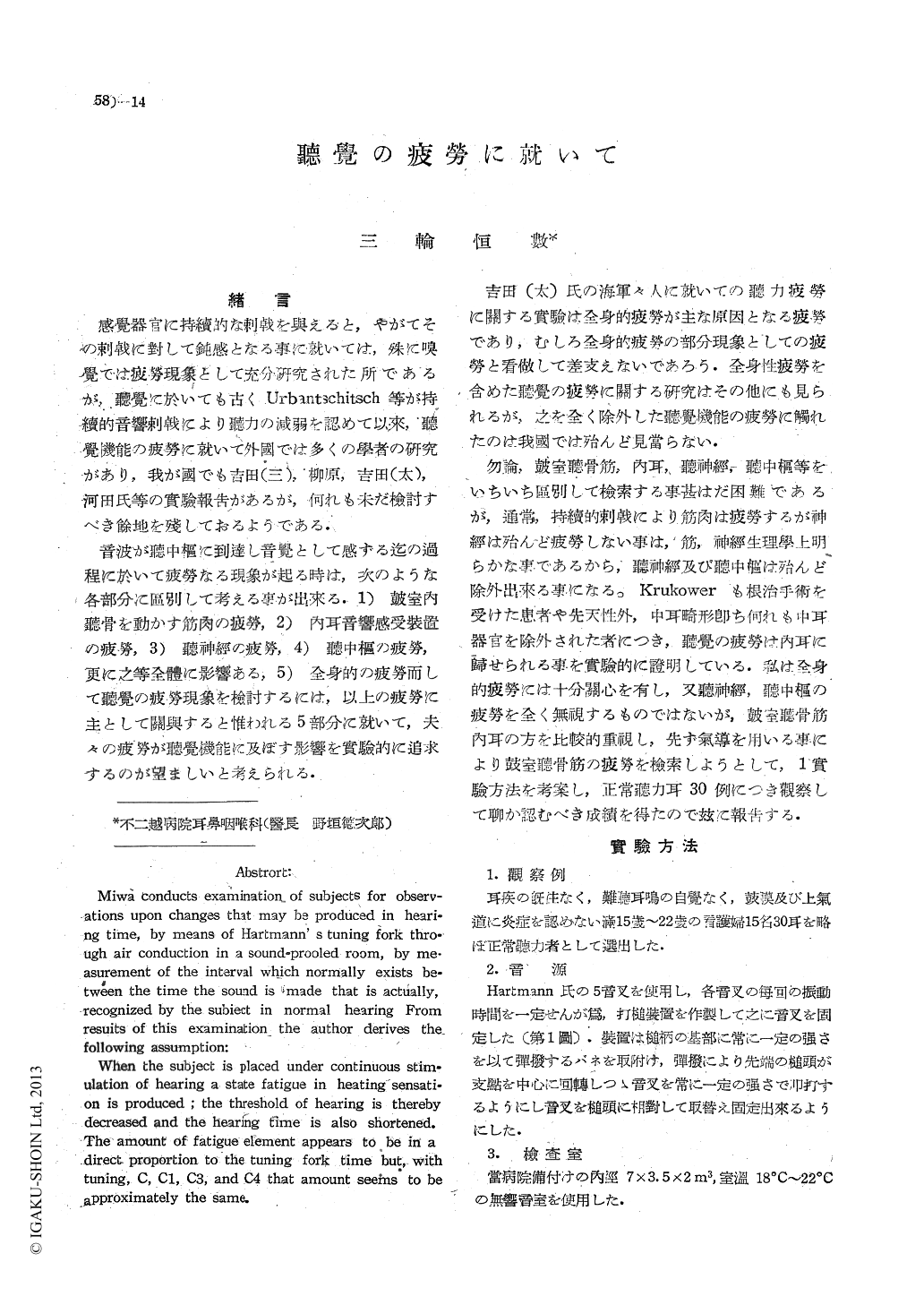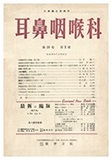- 有料閲覧
- 文献概要
- 1ページ目
緒言
感覺器官に持續的な刺戟を與えると,やがてその刺戟に對して鈍感となる事に就いては,殊に嗅覺では疲勞現象として充分研究された所であるが,聽覺に於いても古くUrbantschitsch等が持續的音響刺戟により聽力の減弱を認めて以來,聽覺機能の疲勞に就いて外國では多くの學者の研究があり,我が國でも吉田(三),柳原,吉田(太),河田氏等の實驗報告があるが,何れも未だ檢討すべき餘地を殘しておるようである.
音波が聽中樞に到達し音覺として感ずる迄の過程に於いて疲勞なる現象が起る時は,次のような各部分に區別して考える事が出來る.1)皷室内聽骨を動かす筋肉の疲勞,2)内耳音響感受装置の疲勞,3)聽神經の疲勞,4)聽中樞の疲勞,更に之等全體に影響ある,5)全身的の疲勞而して聽覺の疲勞現象を檢討するには,以上の疲勞に主として關與すると惟われる5部分に就いて,夫々の疲勞が聽覺機能に及ぼす影響を實驗的に追求するのが望ましいと考えられる.
Miwa conducts examination of subjects for observ-ations upon changes that may be produced in heari-ng time, by means of Hartmann' stuning fork thro-ugh air conduction in a sound-prooled room, by me-asurement of the interval which normally exists be-tween the time the sound is made that is actually, recognized by the subject in normal hearing From resuits of this examination_the author derives the following assumption:
When the subject is placed under continuous stim-ulation of hearing a state fatigue in heating sensati-on is produced; the threshold of hearing is thereby decreased and the hearing time is also shortened. The amount of fatigue element appears to be in a direct proportion to the tuning fork time but, with tuning, C, C1, C3, and C4 that amount seems to be approximately the same.

Copyright © 1951, Igaku-Shoin Ltd. All rights reserved.


